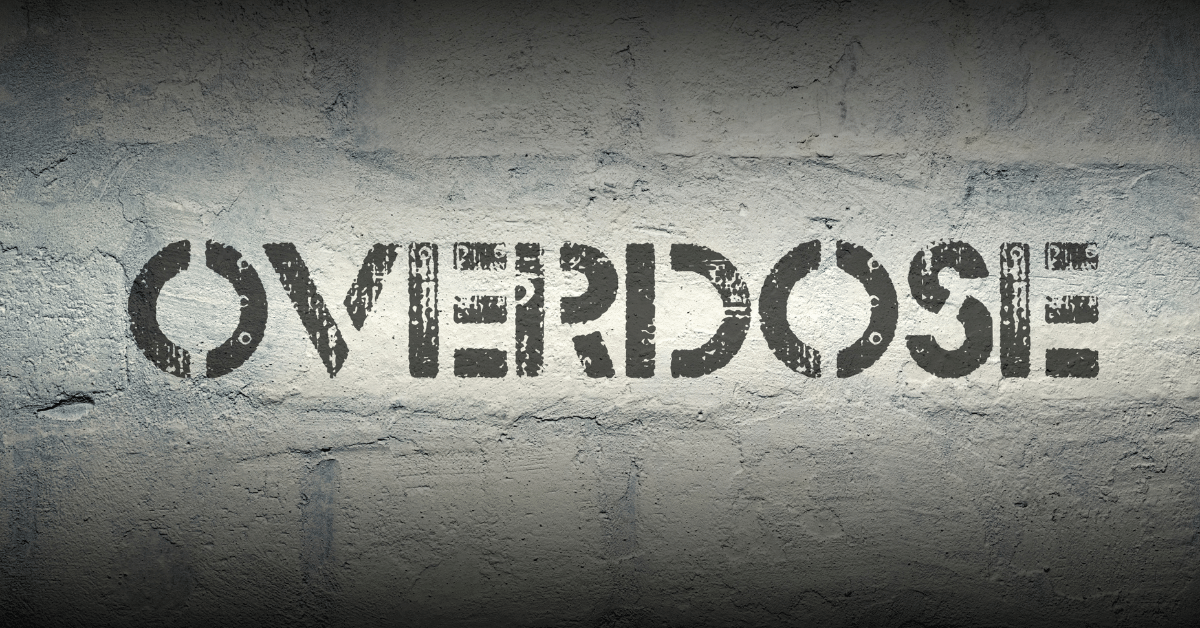One of the primary risks of a substance use disorder is fatal overdose. Not all overdoses are fatal, mind you, but when it’s happening, there’s no easy way to tell whether or not you’ll survive. Moreover, cocaine overdose and heroin overdose, for example, look different. So do meth overdose and prescription opioid overdose for that matter. The signs of overdose will depend on the substance in question. The rate of fatal overdose is now historically high, with more than 107,000 deaths reported in 2021. The following information can help you recognize the signs that someone is experiencing a drug overdose.
If you or someone you know has a substance use disorder like one of those described here, don’t wait for an overdose. Find the nearest addiction treatment center or call 888.448.0302.
Recognizing an Opioid Overdose
Nearly 92,000 drug overdose deaths in 2020 involved an opioid. Opioids cause more deaths than cocaine and methamphetamine combined. Deaths for an opioid overdose occurs when to much of the drug overwhelms the brain, interrupting the boy’s natural drive to breathe. When someone experiences an opioid overdose their breathing becomes dangerously slowed. This can cause serious brain damage or death. It can be hard to tell if someone is overdosing. If you’re not sure it’s best to treat it like an overdose.
 Opioids: Signs of Overdose Include:
Opioids: Signs of Overdose Include:
- Small, constricted “pinpoint pupils”
- unconsciouness or unresponsiveness
- Snoring, choking or gurgling sounds
- slowed breathing
- cold/clammy skin
- Pale, blue skin
- discolored lips or fingernails
If you suspect someone is experiencing an opioid overdose, call 911 immediately. Administer naloxone if available. Encourage the person to wake up, and keep breathing. Lay them on their side to prevent choking. Stay with the person until emergency responders arrive.
Cocaine: Signs of Overdose
Over 14,600 people died due to fatal cocaine overdose in 2018, yet fatal overdose rates have climbed every year since. If you notice the signs early enough and call 911 right away, though, you might be able to save a life. Data provided by the National Institute on Drug Abuse suggests that the anxiety that comes with the high might be an early warning sign. If that anxiety reaches an extreme level or gives way to agitation, that might be an early indicator of overdose.
If a person appears to be sweating for what seems like no reason, that’s another indicator. They may even run a fever as a result of an overdose in progress. This is an incremental step toward the more severe phase of cocaine overdose. Once you reach that severe phase, it could involve irregular heartbeat or even a heart attack. They could also suffer a stroke; in which case, watch for signs of stroke specifically. Aside from cardiac events, they might seize or even have difficulty breathing all of a sudden.
There are other warning signs that only you might catch because they’re happening to you. If you’re concerned you may have overdosed, high blood pressure might be something you can intuit within yourself better than a friend could notice it. It’s another sign of overdose. The high of cocaine, of course, can accelerate your heart rate. However, if you’re used to the high, you likely know whether or not that rate’s faster than at other times that you were high. If you think you might be hallucinating, that part of the high is also consistent with overdose and would otherwise not occur.
Signs of a Cocaine Overdose Include:
- Anxiety or agitation
- Profuse sweating
- High temperature
- Irregular heartbeat
- Hallucinations
- High blood pressure
Heroin: Signs of Overdose
In 2018, almost 47,000 of the fatal overdoses were attributed to opioids, including heroin according to the Centers for Disease Control and Prevention (CDC). Heroin overdoses bring a higher mortality rate than cocaine overdoses in the first place. This is partly because people keep getting hooked on prescription opioids and then losing access to those drugs. A massive portion of those people consistently trend toward heroin use thereafter.
The most common signs of a heroin overdose in progress include a bluish hue on one’s lips and fingertips. Another is pale skin, and a third is shallow breathing. Those breaths can even turn into gasps as a user struggles more and more to get air. The lack of color in the skin is a sign of vitality leaving even though the individual is conscious or, at least, still breathing.
Addictionologists will tell you, though, that heroin differs from some other drugs like cocaine when it comes to consciousness. From marijuana to certain benzodiazepines, a person can pass out during their high with little risk of not waking up. Heroin overdose, on the other hand, frequently presents as unrelenting unconsciousness. A person may even still be alive yet be impossible to wake up by shaking, slapping or yelling at them. This is especially common in the case of overdosing on heroin laced with synthetic opioid fentanyl.
Signs of a Heroin Overdose Can Include:
- Shallow breathing (even gasping)
- Pale skin
- Blue tint on lips or fingertips
- Unresponsiveness
- Slurring words
Meth Overdose
In the U.S., Methamphetamine was responsible for more fatal overdoses than any other drug class in 2018. With well over 67,300 deaths, it exceeded both heroin and cocaine before the pandemic. One reason for this is that meth overdose can seem like it comes out of nowhere. Some users experience overdose the first time they try meth. It’s important to note, though, that meth overdose is entirely treatable if time permits.
Many of the same signs of overdose for both cocaine and heroin are possible warning signs for meth also. Difficulty breathing, seizures and fever are all applicable. Not only might high blood pressure be a sign of overdose on meth but also low blood pressure. Meth users might suffer cardiac events or chest pain, too. Additionally, kidney failure might occur, which would be noticeable due to very dark urine or peeing very little despite eating and drinking normal amounts. Stomach pain can present at an extreme level.
Another thing to watch is personality. Meth overdose usually results in extreme shifts in personality. A user who overdoses becomes extremely paranoid and hyper aggressive. All of this is, of course, relative to their typical behavior, though.
Signs of a Possible Meth Overdose:
- Trouble breathing
- Seizures
- High blood pressure
- Chest pain
- High body temperature
- Intense stomach pain
- Loss of consciousness
- Paranoia
How to React to Signs of Overdose?
If you encounter someone who may be overdosing on drugs call 911 immediately. Time is critical, especially if someone has stopped breathing. You’ll need to provide emergency dispatchers with your exact location, your phone number and any visible drugs that may be contributing to the overdose. Move the person onto their side to prevent them from choking. You may need to administer CPR if they are not breathing and have no pulse.

Choose Recovery Over Addiction
We're here 24/7 to help you get the care you need to live life on your terms, without drugs or alcohol. Talk to our recovery specialists today and learn about our integrated treatment programs.




